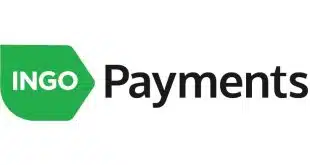Microsoft Corp. is working on new authentication software that will identify consumers to merchant sites on the Internet and initiate payment processing. The software, which the Redmond, Wash.-based software giant is calling InfoCard for now, will be released to developers for feedback by the end of the month, according to Microsoft executives. Microsoft has not set a date for general release, despite some reports this week that it will be included in the next version of the company's operating system, provisionally called Longhorn and expected next year. As it stands now, InfoCard is very much a work in progress. Microsoft spokespeople are reluctant to speak about the product in any detail or give specifics on how it might work. According to information Microsoft executives released this week, the InfoCard application would reside on a user's PC and would hold all identification information necessary to authenticate the user across multiple sites. When the user wants to buy an item from an e-commerce site, the site would ping the application, which would prompt the user to authorize payment. InfoCard would then route account and transaction details to the relevant payment network. Microsoft likens the way InfoCard would work to the way a wallet holds credit cards. The Web merchant would not see credit card numbers or other personal data. “Just as you have multiple cards in your wallet, InfoCard helps you manage multiple identities issued by different providers,” says a Microsoft spokesperson in an e-mail to Digital Transactions News. But Microsoft officials concede that the company would need to secure the cooperation of card networks and banks to make the payment function work in the mass market. Beyond holding and presenting identity data when needed, the software would also support authentication technologies such as so-called x509 certificates associated with smart cards, according to Microsoft. The InfoCard concept reminds many observers of Passport, a so-called single-sign-on service Microsoft introduced six years ago to simplify digital authentication and handle e-commerce functions. Passport failed to catch on, these observers say, largely because it involved Microsoft as the holder of identification information, rather than the user. With InfoCard, they say, Microsoft may have a better chance, since the new technology allows users to hold and control the data on their own machines.
Check Also
Alacriti Updates Credit Union’s Payments Operations and other Digital Transactions News briefs from 3/28/25
Lighthouse Credit Union said it will work with payments-technology provider Alacriti Inc. to update the credit union’s …




